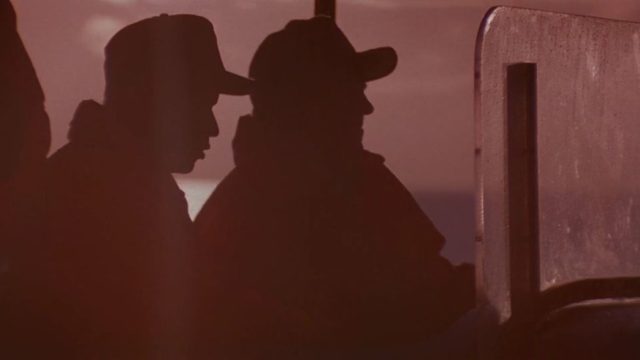In June, I became a father for the first time. A lot of things changed in my life all of a sudden, but the most important one was that I was now expected to have a collection of dad movies to watch with my new daughter. It was a moment I had been unknowingly preparing for a long time.
The “dad movie” has had a resurgence in the public consciousness in recent years, mostly attributable to a dearth of new releases that could fit comfortably alongside the canon of midbudget action, comedy, and sports movies that occupy the DVD shelves of the nation’s fathers. But what makes a “dad movie” is strangely amorphous; to paraphrase Supreme Court Justice Potter Stewart’s thoughts on pornography, the concept is difficult to define, but you know it when you see it. What I’d like to do with this column is not find a set of rules that dad movies have to follow, but examine some of the canonical classics in depth, see why they appeal to dads, and maybe discover some newer releases that younger fathers can add to their own repertoire.
It’s fitting then, that the first movie this column will be examining is Crimson Tide, directed by Tony Scott and starring Denzel Washington and Gene Hackman. Scott and Washington’s long-running collaboration was a particularly fruitful one. Separately, they could be considered dad movie royalty: the genre’s ultimate auteur and its biggest star. But with their movies together, they have maybe contributed more to the aesthetic definition and feel of thye dad movie than anyone else. It’s fitting that they have Hackman on hand as well; with The Conversation and The French Connection, Hackman established himself as the biggest dad-movie star of a previous generation. Seeing them together in Crimson Tide feels like a baton being passed.
Considering how Scott became synonymous with a certain type of action cinema, it’s shocking that some of the tensest moments in Crimson Tide generate suspense out of Hackman and Washington’s dialogue. The script (credited to Michael Schiffer, but with uncredited rewrites from Quentin Tarantino, Steve Zaillan, and Robert Towne) does great work laying out the differences between the two from the beginning: Hackman’s Captain Ramsey is hot-headed, impulsive, instinctual. He even hires Washington’s Lieutenant Commander Hunter, an intellectual with no combat experience, because his dog likes him. Later, when a missile from an enemy sub knocks out communication before Ramsey can receive confirmation to launch the nukes, the differences between the two men will boil over into a power struggle with the fate of the world on the line. Scott expertly uses the action scenes to ratchet up the tension to unbearable levels, but is able to make a climax out of something as simple as two men waiting for a response on the other end of the line.
Beyond its aesthetic value, it is easy to see why Crimson Tide quickly became a dad movie staple. War movies have infinite dad movie appeal, and the philosophical conflict at the center is thought-provoking enough to make you wonder what you would do in the same situation (the movie is smart enough to put us on Hunter’s side, but also give Ramsey’s point of view a weight and logic that can’t be ignored). And for Washington and Scott, it was the beginning of a collaboration that would lead to further dad movie glory.
Next time: With The Whale coming out, it’s time to go back and examine the last time Darren Aronofsky made a small, intimate character piece, The Wrestler.

